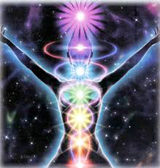Insight
Swadharma, a learning journey towards wholeness
Abstract
Does finding one’s Swadharma, one’s own law of being, have any bearing on the health and well-being of an individual and society? Our current education system is a by-product of the Industrial Revolution and thinks in terms of batch-production ignoring the individual. The idea of the human being as an evolving soul with a unique evolutionary past and its gifts and mission in life is still not part of our mainstream ideas of education and its pedagogy. This is a serious error resulting in individual and collective disorder and demands innovative solutions. Since 2016, Auroville has been offering five-week long educational programmes focusing on the idea of Swadharma for youths aged between 18 to 28 from around the world.
Swadharma and our psychological centre
Often the Sanskrit word swadharma is translated as ‘one’s duty’ and this brings to mind the notions of external social responsibilities or moral and legal obligations. However, that’s not how Sri Aurobindo renders its meaning:
“... to live in one’s self, determining one’s self-expression from one’s own centre of being in accordance with one’s own law of being, Swadharma, is the first necessity. Not to be able to do that means disintegration of the life; not to do it sufficiently means languor, weakness, inefficiency, the danger of being oppressed by the environing forces and overborne; not to be able to do it wisely, intuitively, with a strong use of one’s inner material and inner powers, means confusion, disorder and finally decline and loss of vitality (1).”
Our approach to Swadharma is from this perspective. Swadharma is not an external duty one must perform in a society based on any economically or culturally formed social roles. Swadharma is one’s own law of being, an inside-out movement arising from one’s own inmost centre. Such a movement is fundamental to the integration, order and vitality of life and therefore the well-being of the individual and society. According to the Mother:
“We give the name ‘psychic’ to the psychological centre of our being, the seat within us, of the highest truth of our existence, that which can know this truth and set it in movement. It is therefore of capital importance to become conscious of its presence in us, to concentrate on this presence until it becomes a living fact for us and we can identify ourselves with it (2).”
The word psychology is derived from the Greek root psychē (ψυχή), soul. However, in the modern academic discipline called Psychology, as it has developed in the West, the existence and the nature of the soul and its developmental stages are yet to be clearly recognised and studied. But, integral psychology developed by Sri Aurobindo and the Mother based on yogic research gives central importance to the psychic, the psychological centre of our being. It is not the intention or scope of this artide to explore questions regarding the existence or non-existence of the soul as in academic or religious debates. What is important for us is the possibility of an experiential exploration which makes it possible for an individual to come in touch with the centre of their being. We shall call this inmost centre as the soul or the psychic being. Integral psychology defines these two terms with greater precision:
“There is the divine spark from the beginning, the soul, in all things, but it takes a long time and a long evolution for it to arrive at a conscious expression and form of manifested being — what we call the psychic being (3).”
“At first, the soul is something essential behind the veil, not developed in front. In front there is only the body, life, mind. In the evolution the soul consciousness develops more and more in the created being until it is so developed that it can come entirely in front and govern mind, life and body (4).”
“The psychic being is the soul evolving in the course of birth and rebirth...(5)”
This evolving godhead within is the key to the Swadharma programme. Our attempt is to help young seekers to orient themselves towards their inner discovery and thus essentially the Swadharma programme is psychic education.
“With psychic education we come to the problem of the true motive of existence, the purpose of life on earth, the discovery to which this life must lead and the result of that discovery: the consecration of the individual to his eternal principle (6).”
Hence the sub-text of the Swadharma programme — “The Soul of Action” and “Find Your True Calling”
Modern education system
The present mainstream education system is largely a by-product of the Industrial Revolution and its penchant for mass production. We have inherited its mass production mindset and think in terms of batch-production of ‘educated’ masses who are meant to fit into the socio-economic system. The human being is treated as a biochemical machine competing in a free-market economy. Science is increasingly looking upon human beings as complex biochemical systems that can be engineered and programmed. The uniqueness of each individual arising from the truth and rhythm of their inmost being has no place in such an education system.
As a result of such worldviews and batch-production mindset in the process of education, the learners get disconnected from their inmost being. This makes their self-expression only a reaction to the external forces without any ability to live in their own truth within. In the long term, this leads to increasing inner emptiness, confusion, disorder and degeneration of life at an individual and collective level. Such a disintegration may be a good business opportunity to sell more consumer products to fill in the inner vacuum but it destroys in the long-term, not only the individual and the society but the ecosystem as well.
A soulless education creates a soulless society and its soulless social machinery. When individuals are no more in touch with their souls, they also get disconnected from Nature. When people are disconnected from Nature they would also get desensitised and disconnected from the life of not only other people but also of all other species on the planet and its ecosystem. The destruction of our biosphere and its delicate balance is now one of the major challenges we are facing today as a species. This is not a random consequence, there is a direct link to the very foundation of our education system and worldview. We do have a serious disintegration happening at all the levels of our society and perhaps helping people to find their Swadharma is where a broader healing can begin.
The Auroville context
According to The Charter of Auroville, given by the Mother, “Auroville will be the place of an unending education, of constant progress, and a youth that never ages (7).” Further, She explained in a seminal document called To Be A True Aurovilian:
“The first necessity is the inner discovery in order to know what one truly is behind social, moral, cultural, racial and hereditary appearances. At the centre there is a being free, vast and knowing, who awaits our discovery and who ought to become the active centre of our being and our life in Auroville. The fulfilment of one’s desires bars the way to the inner discovery which can only be achieved in the peace and transparency of perfect disinterestedness (8).”
This inner discovery is at the heart of a lifelong learning journey in Auroville. Ever since its founding ceremony on 28th February 1968, over the last five decades, Auroville has grown into an integral living campus covering more than 3,000 acres of afforested landscape. Auroville began on a barren plateau but when the inner call became the top priority of its members its direct and most visible outer consequence was the regeneration of the entire landscape into a thriving ecosystem. It is living proof that when people come in touch with their soul and follow its call, they will honour the larger life of which they are an integral part.
As of now in 2018, nearly 2,900 people from 56 countries are living in Auroville and exploring a new way of life following their own unique trails of the inner call. The huge diversity of creative activities found in Auroville is a direct consequence of the great individual freedom with which the members of the community are exploring their own Swadharma. This diversity of activities is also now attracting thousands of volunteers and interning students from across the world. However, there were hardly any facilitated long-term learning programmes offered to the volunteers and interns to discover their own inner calling. While integral education is lifelong learning and the Auroville Charter declares Auroville to be a place of unending education, Auroville is yet to re-imagine itself to be a new kind of university where learning in action is the norm with karmayoga as its deeper means. It is to embark upon this greater destiny of Auroville that we have initiated the Swadharma programme.
The Swadharma programme
Swadharma offers young seekers — aged 18 to 28 — an opportunity to embark on a transformative learning journey with the goal of self-discovery in the context of Auroville. The programme has been designed as a five-week long multi-disciplinary foundation programme with an option for a self-directed internship in Auroville after five weeks. The duration of stay after the five-week programme is left to the learners to decide depending on their convenience. While self-directed learning is the norm in Auroville, without some basic training in recognising the true self from the instruments through which it acts, the learning journey is likely to be chaotic. So the focus of the programme is to help the learner to experientially discern their true self from all its instrumental layers and bring this inner guide to lead their actions.
We recognise that the awakening and growth of the inmost being is a lifelong process and the purpose of the programme is to initiate and establish the learner on the path of unending self-exploration, self-discovery, and self-creation. A growing passion for the joy of learning and creative self-transformation will be the sign that the inherent force dormant within the individual is awake and beginning to chart its course of growth. Such an individual will be self-driven and in harmony with the individual purpose and the purpose of the larger whole of which the individual is a part. Thus the pedagogy simultaneously enables the learner to be:
1. In harmony with one’s inner nature
2. In harmony with one’s outer work
3. In harmony with the larger whole of which the individual is a part.
Pedagogy
How do we awaken the learner to the divine spark within? How do we help them to gather this spark into a growing flame? How do we help them to express it in outer action? How do we do it using the resources available within Auroville? These were the questions that were alive in us while designing the programme.
Since this is not about sharing information, the Swadharma programme has no textbooks. The only book to read is one’s own interior and the challenge is to invoke the presence of the inner fire. This is done best not as an information exchange but by transferring the inspired energy by those who are already following its call. So the most precious support in the learning journey is the presence of the people who have spent decades toiling in Auroville manifesting their dreams in action. In this process we broadly cover three areas, Self, Society and Environment. It is their struggle and battle with challenges on the way and the sharing of this precious experience in their own living contexts that made the biggest impact on the learners. There is plenty of sharing and plenty of learning.
While encounters with the living intensity of the fire on the path provide great stimulation and inspiration, it is not enough for the learners to orient themselves towards their own inner fire. This is done through detailed self-observation to discern between sensations, impulses, desires, drives, emotions, thoughts, ideas, values, imaginations, insights and inspirations. Such a self-observation is facilitated through deep listening, awareness through the body, journal writings, sharing circles, natural peer-to-peer learning and feedback from vigilant mentors. Theatre too was actively used in inner exploration. A general understanding of the various parts of our being and their psychological nature was provided as a reference for self-observation. All this was to help the learner to discern between their external parts of the being and the signals coming from the inmost centre. The learners’ first challenge is to discover their values and potential lines of external work in alignment with their inmost truth and its guidance. By now each learner is on their own unique trails of growth and they start exploring their specific domains of interest by meeting domain experts.
But then, it is not sufficient that one gets some inner connection and its inspiring insights, there must be a readiness and capacity in the outer instruments to put them into daily life context. Unless the outer life changes, the inner contact cannot come fully alive and lead the learner. This naturally demands the leaner to encounter one’s instrumental nature in terms of the body, the vital energy animating it and the intelligent will of the mind. Each of these instruments is to be observed in terms of their strengths and weaknesses. Such an understanding arises vividly only when the learner attempts to bring out the inner contact into practical action by attempting to do dream projects of their choice. While engaging in action the complexity of surrounding life brings out the strengths and weaknesses of each learner. That’s when more precise understanding of the needed daily practices to purify and develop the instrumental nature comes into active awareness of the learner. It is this encounter that is at once external and internal, that brings out the shadowy elements within that refuse to change. That’s when the battle begins between the light and shadow within.
Self-doubt, laziness, impulses, distractions, fears, sorrows, inner wounds, depression, anger, childhood traumas and all that were hidden in the inner cellars starts showing up when the learners embark upon actively changing their daily life-patterns. That’s when a safe space to share with deep bonds of love and care become a necessary condition for everyone to be vulnerable and open. This enables the learners to leave behind their outer persona and embrace confusion and pain and dive inward to find the deeper truth and its healing presence. Often breakdowns lead to breakthroughs and facing confusion and walking through their clouds leads to luminous clarity. This naturally brings out the importance of faith, aspiration and sincerity on the path.
Everyone has their own pace and each one is on their own authentic trail with its own unique challenges. And it is a lifelong journey. Five weeks of focused exploration only puts the learner in touch with what is possible and shows them how to walk the path and build their own transformational practices. The Swadharma programme is not about finding one’s career, but about how to take authentic steps on the path so that one’s inner call naturally unfolds into outer fields of action.
Experience so far
Since 2016, we have had 75 students who have gone through the Swadharma programme. Nearly 35 of them stayed back in Auroville to continue their learning journey and to consolidate what is emerging from within. Such internships, entirely self-directed, lasted from one month to two years and some of them are now in the process of joining Auroville as members of the community. Swadharma alumni are emerging as a closely knit tribe supporting each others’ journey and the programme is largely spreading through word of mouth.
There is a growing demand for a similar programme for those who are above the age of 28 and we are currently in the process of developing such a programme. Based on the Swadharma experience, we have also initiated a seven-month Auroville Gap Year Programme for the youth of Auroville who have completed their schooling.
What we have learned is the enormous learning potential already present in Auroville and all that we have to do is to awaken the aspiration for a greater perfection in the heart of the learner. The rest unfolds as a natural self-directed journey where each learner is scripting their own unique path. We are yet to do a follow-up research on those who have completed the programme to evaluate the results. However since the tribe is closely connected the overall sense is a profound gratitude for having embarked upon this journey.
More about the programme can be found
here: www.Swadharma.auroville.org
References
1. [Online] Available from: http://incarnateword.in/cwsa/20/indian-culture-and-external-influence Accessed 19th November 2018.
2. [Online] Available from: http://incarnateword.in/cwm/12/the-science-of-living Accessed 19th November 2018.
3. [Online] Available from: http://incarnateword.in/cwsa/28/the-psychic-being#p65 Accessed 19th November 2018.
4. [Online] Available from: http://incarnateword.in/cwsa/28/the-psychic-being#p73 Accessed 19th November ..2018.
5. [Online] Available from: http://incarnateword.in/cwsa/28/the-psychic-being#p65 Accessed 19th November 2018.
6. [Online] Available from: http://incarnateword.in/cwm/12/psychic-education-and-spiritual-education#p1 Accessed 19th November 2018.
7. [Online] Available from: https://www.auroville.org/contents/1 Accessed 19th November 2018.
8. [Online] https://www.auroville.org/contents/526 Accessed 19th November 2018.
Manoj Pavitran is a core member of the Auroville Campus Initiative at SAIIER, Department of Further Learning in Auroville.
Share with us (Comments,contributions,opinions)
When reproducing this feature, please credit NAMAH,and give the byline. Please send us cuttings.








